#pierre chang
Text
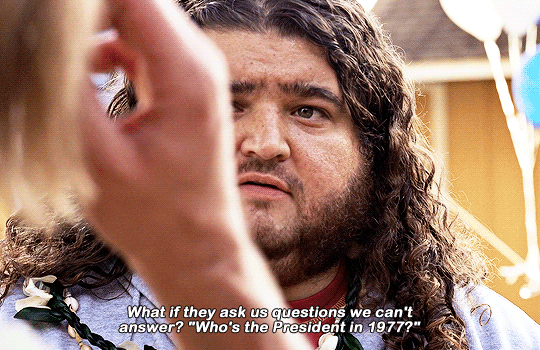



Lost
5.09 // 5.15
#lost#lostedit#lost spoilers#tvedit#scifiedit#hugo hurley reyes#pierre chang#james sawyer ford#*#sfgkardelen
603 notes
·
View notes
Photo


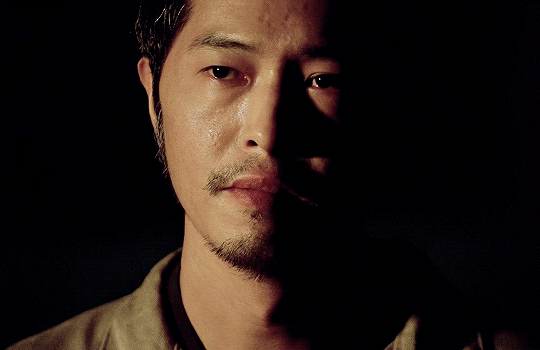

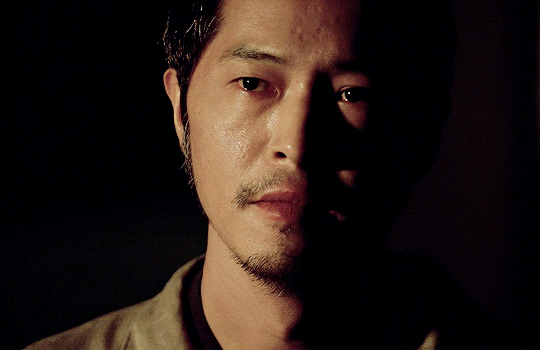
Miles, I need you.
You do?
#lost#lostedit#tvedit#lost spoilers#miles straume#pierre chang#nikolatexla#i'd still cry to this even if i weren't the most sentimental person ever#this and daniel with charlotte#even my brother cried to this. ive never seen him cry in 10 years#maybe it's because we have serious family issues#i'm having a hard time these days. i feel depressed most of the time#thanks for pulling me out of this mess lost creators
102 notes
·
View notes
Text
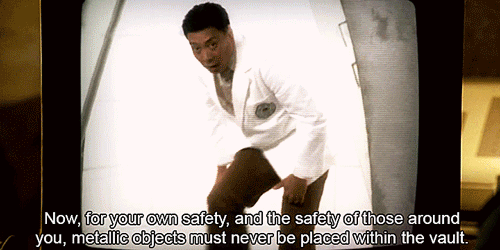
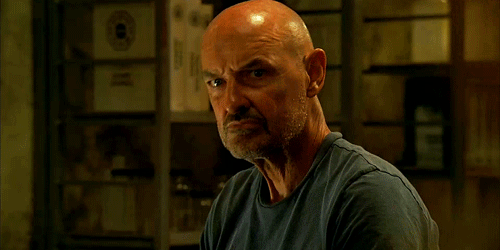


Every Afictionados Best Line Award (Casey)
LOST Episode 413: There's No Place Like Home Part 2
by the Afictionados Podcast Network
#ben linus#john locke#pierre chang#benjamin linus#lost#afictionados#best line award#episode#there's no place like home#413
11 notes
·
View notes
Text
these are dads from lost! vote for your favorite, or the one you think is the best, or the hottest, or whatever! the winner will be entered into a poll tournament with 63 other fictional dads.
if you have one that is not listed above, please comment!
#march dadness#lost#david reyes#ben linus#michael dawson#roger linus#anthony cooper#charles widmore#woo jung paik#christian shephard#pierre chang#lost abc#poll
37 notes
·
View notes
Text

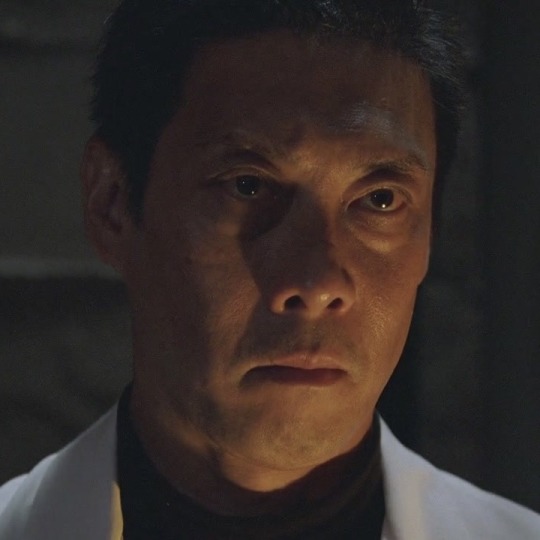
#legendary man#pierre chang#dr pierre chang#dr chang#françois chau#lost#lost abc#abc lost#lost fmk polls#my posts#my polls
8 notes
·
View notes
Text
I wonder if there's significance to the fact that Dr. Chang's aliases all seem to have to do with candles
#this is about Lost by the way#in case random followers be wondering#echo rambles#lost#abc lost#pierre chang#lost spoilers#edit: ohhh it was in fact a reference to the light. Neat!!
2 notes
·
View notes
Text

















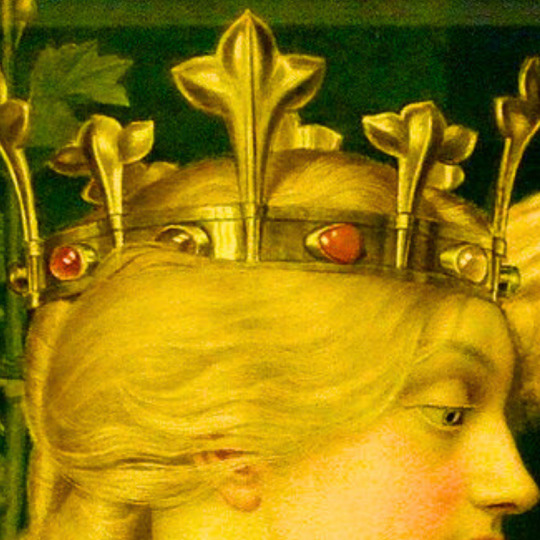


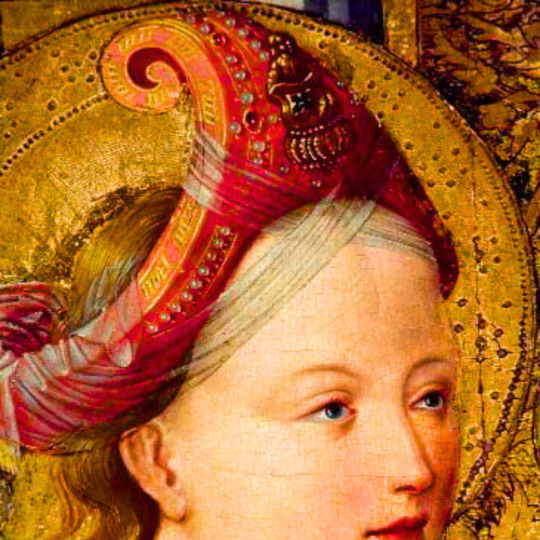

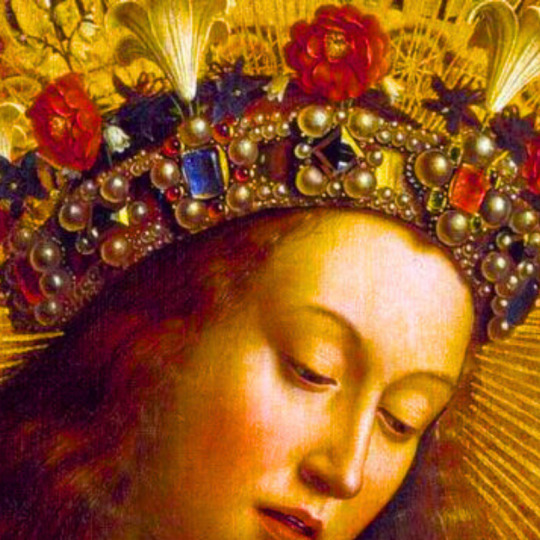






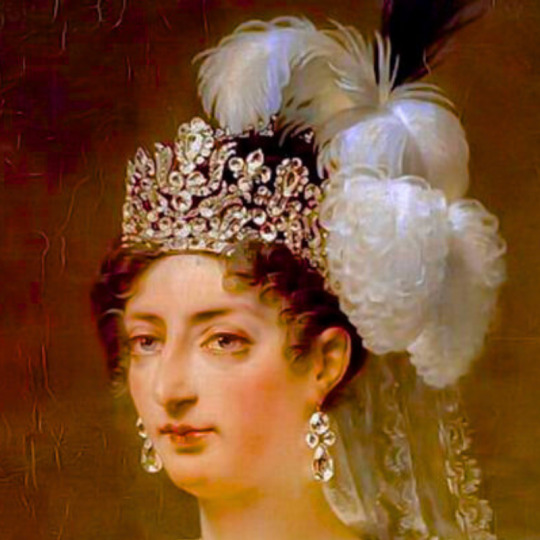
art + hair pieces
#orientatalin by edouard frederic wilhelm richter#cant find this one#this one either its tougher than you think to reverse search them#portrait of josephine de beauharnais by francois gerard#the marquise de seignelay and two of her sons by pierre mignard#infantin isabella clara eugenia at age 13 by alonso sanchez coello#grand duchess alexandra pavlovna romanova of russia but i cant find the artist#marie frederike amalie queen of greece by joseph karl stieler#empress josephine by jean louis viger#queen anna of hungary and bohemia by hans maler#elisabeth of austria by jooris van der straaten#anne wortley by paul van somer#manuela gonzalez velazquez tocando el piano by zacarias gonzalez velazquez#adelingen by heinrich friederich fuger#the unequal marriage by vasili pukirev#idealised portrait of a young women as flora by bartolomeo veneto#a portrait of a noble lady by jan adam kruseman#changing the letter by joseph edward southall#lorelei by james c christensen#the crucifixion by jacob cornelisz van oostsanen#saint dorothy i think this is the title its kinda confusing by i cant find the artist#saint barbara by ambrosius benson#virgin mary by hubert van eyck and jan van eyck#princess maria alexandrovna by ivan makarov#ladies in the blazon room of the winter palace by adolphe ladurner#queen marie therese and her son by charles beaubrun#boyar's wife by konstantin yegorovich#dont know the title but its by barthel bruyn the elder#queen isabella ii of spain by unknown artist#portrait of maria therese charlotte of france by antoine-jean gros
844 notes
·
View notes
Text


Pierre Gasly lays a flowers in tribute to the late Anthoine Hubert during the “Run for Antonine”
Photo Credit: Dan Mulan
#:(#💔#its so sad that repeatedly this track has caused such grief and harm and yet no changes are made#pierre gasly#f1
602 notes
·
View notes
Text
Catch me because I'd hate to fall
Charles Leclerc x reader
Synopsis: Reader is afraid of heights and a game of truth or dare puts them in the last place they want to be.
Warnings: panic attack, flashback, not proofread (We die like the Ferrari strategists)
Notes: Google translated French, no use of Y/N, Charles is a simp
Genre: fluff, hurt/comfort
Truth or dare is a game for teenagers who are determined to learn eachothers secrets. Or that's what you originally thought.
Racing drivers are not normally the type to sit around on the floor playing games that are used for diabolical purposes. Or that's what you had assumed.
You had been wrong on both.
It's a calm weekend, no races or PR obligations. Max thought it would be nice to have a small get-together with some of the drivers who are currently in Monaco.
Charles thought it sounded like a wonderful idea and convinced you to join him at Max and Kelly's apartment for dinner.
"It this a casual thing? Or do I need to dress up?" You rummaged through drawers looking for something that felt right.
"I think it's casual, but if wanted to wear a ballgown I wouldn't stop you because I'm happy when you're comfortable." Charles days from across the room where he is currently getting dressed.
"What if I wore pajamas?"
"My prior statement still holds true. You are the most beautiful human regardless of what you're wearing." His smile makes a hint of red creep into your cheeks. You've been dating for two years, and he still manages to make you get flustered.
You ended up settling on a pair of jeans and one of your charles' t-shirts. A small dinner with friends didn't call for anything much.
You examine yourself in the mirror, making sure everything looks correct before charles appears behind you. An exaggerated look of amazement crosses his face.
"See! Gorgeous! Beautiful! Completely stole my breath away!"
You spin around and place a quick kiss on his cheek.
When you arrived there were already people there. Lando, Daniel, Pierre, Carlos, zand George (most with their respective significant other).
After a pleasant dinner and a few drinks, everyone found themselves laughing at the dumbest thing while sitting in a circle around the living room.
"I have the most amazing idea!" Daniel practically screamed at everyone. Everyone eyed him nervously as his idea's somtimes were not the most wise. Lando Max makes a gesture for him to continue since his outburst got everyone's attention.
"We should play truth or dare."
You looked at Charles nervously. This game never led to anything good back in your high-school years. But the air of the room made you relax and agree to it.
Before anything could start, shrles leaned into you and whispered "You don't have to play mon amour if you don't want to." His words only reassured you that you would be okay playing.
"You suggested the game you go first," Max pointed at Daniel. "Truth or dare, mate?"
"Dare obviously"
The game went perfectly. Everyone is laughing, doing weird and embarrassing things, and sharing stories.
Until it came back to you.
Lando, who had just finished attempting the alphabet backwards, made eye contact with you.
"Truth or dare?"
You feeling a bit risky decided on "dare."
Lando rubs his chin for a moment. "Okay, I dare you to go up to the roof and recreate that one scene from the titanic with charles."
"You mean the one where they are dangling over the edge of the boat?" Pierre asked.
"Yup! Exactly! All happy and lovey dovey, it'll be so cute!"
It seemed harmless. But the mete mention of the top of the building had your breath caught in your throat.
Charles having noticed this leaned in discreetly once again and whispered "don't feel pressured to do anything you don't want to."
You, however, were terrified of everyone discovering your deathly fear of heights. Charles knew because anytime you got on a plane, it was rough. You used to not be afraid, but after having to jump into the safety of firefighters from twenty stories up in a burning building, things hadn't been the same. Falling had become something that haunted your nightmares.
Regardless, you shook your head and went to get your shoes. Since Max lives close to the top anyways, you decided on the stairs. Only hoping to delay the inevitable for a while.
The top of the stairs came too fast. Having opened the door to soon.
The night air brings you back to the present and reminds you why you were here. You could blame the shaking on the crisp Monaco air, but that would be a lie.
You step onto the roof, everyone shuffling out behind you.
One foot in front of the other, closer to the ledge.
Charles never lets your hand go. "I promise that if you back out I will not laugh and I will not let them say a single thing about." He pauses and turns you to face him. "But if you get on the ledge, then I promise I will not let you fall." His eyes and voice are determined and concentrated. Every ounce of you wanted to just leap into his arms and run away. Yet the other emotion, the pride he has for you for making it this far, makes you push just a little more.
Soon your toes are one step up from the edge. An inch of cement guarding you from what could be a disaster.
Your body shakes, your mind going white at the thought of falling. The feeling of your stomach flipping as you fall to your demise.
Inhale. One foot up. Exhale. The other meets it.
Your eyes screw shut. Your body is practically giving out on you.
Charles stands behind you now. His arms encircle your torso and waist. Tying you down to reality as everything else slips away.
Your eyes open. Then they fall.
It's the same thing. The heat makes you want to take the leap. Into to safe embrace of first responders. When did it get so hot? Why are you sweating so much?
There was no time. The building was about to collapse. They are shouting. Comforting words of encouragement. Maybe you can jump.
Your arms go out to help you balance. Then you lean into the pull of gravity. But you don't budge.
"Amour!"
Charles, why was he in the building with you?
Realization came flooding back through your senses. Charles' arms straining to hold you in place.
"Shift your weight towards me, you can do it." His voice gently coaxing you made you realize the building is safe. There is no fire.
You shift your weight backward and fall in charles. The both of you gracefully find the ground.
Warm tears roll down your cheek as Charles refuses to let you go from his embrace.
"I'm so sorry," you sob.
"I'm so proud of you," he whispers.
The night ended quickly after that. Lando apologized for giving you such a dare, and you countered that he didn't know.
Later that night, fast asleep in Charles' arms, your dreams were not haunted by the smell of smoke and your body flipping through the air. Instead, you were meant with Charles holding you upwards to touch the clouds.
#x reader#charles lecrelc#charles leclerc x reader#charles leclerc x you#f1#f1 fic#formula one#ferrari#charles lechair#charles leclerc fic#max verstappen#pierre gasly#lando norris#carlos sainz#charles leclerc is a simp and you can't change my mind#charles leclerc x girlfriend!reader#hurt/comfort#fear of heights#im not actually afraid of heights im afraid of clowns byt that seemed harder to write about
302 notes
·
View notes
Text
Charles: WAIT!
Max: Before you go onto the race track, remember to stop and PROOFREAD!
Carlos: am I Pissing on the car?Lando: did I Read the track rules in bad faith?
Lance: could I be Overexaggerating?
Oscar: am I Out of line for driving like this?
Pierre: is it kind of Fucked up to say that to a teammate?
Esteban: is what I said Rude?
Valtteri: am I being Egotistical?
Yuki: am I Angry at words that weren't in the radio?
Daniel: did I Dream up a pretend driver to get mad at?
Fernando: ONLY YOU CAN PREVENT YOURSELF FROM LOOKING LIKE A JACKASS ON THE TRACK!
#if they said it this will be >100% accurate#formula 1#f1#charles leclerc#max verstappen#carlos sainz jr#carlos sainz#lando norris#oscar piastri#pierre gasly#esteban ocon#valtteri bottas#yuki tsunoda#daniel ricciardo#fernando alonso#incorrect quotes#f1 incorrect quotes#incorrect f1#incorrect f1 quotes#incorrect formula 1#f1 memes#source (with changes): tumblr
59 notes
·
View notes
Text
Cant sleep so im thinking about ayhalo
I think its like. one sided. qaypierre WOULD smooch that demon and take him on dates. qbad would not recognize anything as a romantic gesture. aypierre could throw a bouquet of chocolate roses at him and bad would just be like ! thank you :}
like they love each other, absolutely. they TRUST each other, to the point where i’d even say it gets in the way of bad seeing aypierre as anything more than a good friend. that’s his guy. The dude always in his corner. Friend resource label: team mate (coparent) (down to help kidnap people). bad doesnt do classic romantic relationships- all of his relationships are INCREDIBLY queer, but the closest he usually gets to what others read as romance is a classic chewtoy4chewtoy dynamic. He LOVES to fuck with people and he loves to get fucked with and if there’s a nice jawline or pretty muscles included?? huge bonus !!
he’s got something- not kinder, with aypierre? not calmer, either, but stable, maybe. pierre has proven, over and over again, that he’s on bad’s side. Spying on tubbo, encouraging bad’s pranks, the kidnapping- i can’t call it a reliable dynamic, not with how paranoid bad is, even when he trusts, but there is still a feeling of understanding that, wherever pierre’s limits are for when he cant support bad (or genuinely turn against him), it hasnt been reached yet
aypierre, on the other hand, i dont know enough about to be absolutely sure but there are some Vibes. ironically, i think hes feeling like his relationships are unreliable. max was going to have their baby, and then he wasnt, and then he left him, then max fucking died. plus whatever is happening with him and ayrobot, which probably leaves him feeling like he cant rely on Himself. like he had, if not a little crush on bad, at least some Interest in him, before. as well as several islanders. i remember the days of the Bed Threat.
but thats part of it, too? because those flings didnt have that emotional connection, and i always got the sense that he started looking for that with maximus, to Love and Be Loved rather than pure lust. To care about someone, genuinely, and be cared about in return. but he didnt get that with the flings, and We know that max was using him, but i dont know if he did, but maybe he had a feeling about it and maybe he also had a feelinf about maximus’ feelings towards bad and maybe- there’s something about that? A little push of not-spite-not-projection onto bad.
because bad IS that reliability, right now. he’s a fucking gremlin. a bastard. a prankster silly guy. he trusts aypierre and aypierre trusts him and they dont share everything but so often, when it comes down to it, it is them against the world. them in the corner, caught, aypierre shouting about kissing as a cover for their crimes while bad runs giggling away from him.
#qsmp character analysis#qsmp shipping#<- because i DO think bad would be down to ~fornicate~#but i dont think pierre drifts into that chewtoy zone enoufh for bad to get that Obsession#theyre kidnapping and escaping buddies !! who share food and secrets and strategies !!#but bad would do the same with the other french yknow#god i could go on for YEARS about how queer qbad’s relationships can get that demon is full of LOVE and that love is QUEER#i could make an argument that even his parenting style is affected by his queerness#in the way that he takes on all required roles for the eggs and cares for them SO MUCH#and SO OBVIOUSLY#as a dad/uncle that you dont often get to see in fiction#to the point where he is still in some way seen as a mother figure#but thats a whole different post#anyway this is part-analysis and part-silly written at ass-o’#clock in the morning#if i remember ill come back to tag the ship for filtering purposes but i dont wanna throw ‘i think its one sided and exacerbated by grief#and general yearning for love/stability in an ever changing world’ when prople are just tryin to make em kiss#i respect the kisser causers have fun yall im enjoying seeing it#god i need to sleep#ayhalo
140 notes
·
View notes
Text
Max congratulating others after his bad results
#max verstappen#f1#pierre gasly#sebastian vettel#sergio perez#daniel ricciardo#charles leclerc#carlos sainz jr#george russell#the difference between Baku 2017 and 2021#he really changed in that aspect huh
2K notes
·
View notes
Text




#pierre gasly#charles leclerc#1016#y: 2018#trying to color this properly was a nightmare#and the change of angles was annoying but well#my gifs#*
81 notes
·
View notes
Text

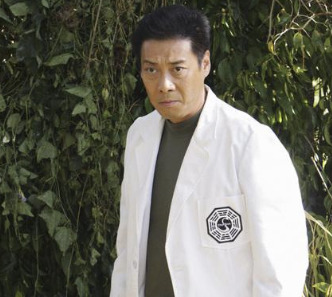



Daniel Dae Kim, Ken Leung, and François Chau
LOST to ATLA
Dharma Initiative to Fire Nation
#LOST#ATLA#avatar the last airbender#ATLA 2024#ATLA live action#abc LOST#daniel dae kim#ken leung#françois Chau#fire lord ozai#the great sage#commander zhao#jin soo kwon#dr pierre chang#Miles Straume
38 notes
·
View notes
Text
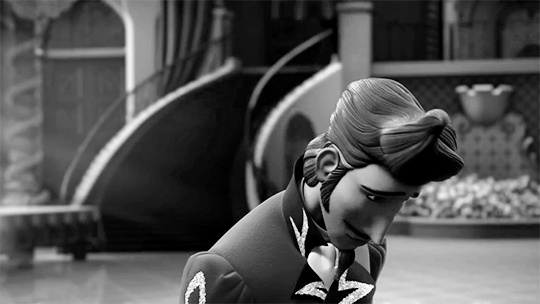

It's dawned on me suddenly
And for no obvious reason
That I can't go on
Living as I am.
#esteban flores#elena of avalor#disneyedit#eoaedit#don't you hate it when you have a blorbo; a million song lyrics that suit them; and no photoshop skills to speak of?#esteban flores and pierre bezukov (specifically the version in great comet) would get along great tho#the same bruised desperate heart longing for purpose and overflowing with love but no vessel to put it in (at present)#the same intellectual snobbery as a faulty mask for profound and permanent self-loathing#the same...'survivor's guilt ' isn't even the right word...it's definitely that but it's also just 'existence' guilt#like 'yes; I failed to die alongside those I love on the battlefield. but even before that; I failed at being loved in the way I wanted to'#'which is like the one job we are supposed to have as humans: to love and be loved.'#'once I'd like to think I was worthy but now I know that I am not. I have wasted my chances and made too many mistakes'#of course they both Esteban and Pierre still ARE worthy of love but it takes time and effort and willingness to change to find it#am going to try to also do something with 'dust and ashes' at some point#not to mention like my million BATB broadway; Frozen broadway and JCS lyrics that suit Esteban#myedits#mygifs#obligatory ' I used to be butter; I used to be butter; I used to be butter' joke here
42 notes
·
View notes
Text

Chapter VI. Fourth Period. — Monopoly
1. — Necessity of monopoly.
Thus monopoly is the inevitable end of competition, which engenders it by a continual denial of itself: this generation of monopoly is already its justification. For, since competition is inherent in society as motion is in living beings, monopoly which comes in its train, which is its object and its end, and without which competition would not have been accepted, — monopoly is and will remain legitimate as long as competition, as long as mechanical processes and industrial combinations, as long, in fact, as the division of labor and the constitution of values shall be necessities and laws.
Therefore by the single fact of its logical generation monopoly is justified. Nevertheless this justification would seem of little force and would end only in a more energetic rejection of competition than ever, if monopoly could not in turn posit itself by itself and as a principle.
In the preceding chapters we have seen that division of labor is the specification of the workman considered especially as intelligence; that the creation of machinery and the organization of the workshop express his liberty; and that, by competition, man, or intelligent liberty, enters into action. Now, monopoly is the expression of victorious liberty, the prize of the struggle, the glorification of genius; it is the strongest stimulant of all the steps in progress taken since the beginning of the world: so true is this that, as we said just now, society, which cannot exist with it, would not have been formed without it.
Where, then, does monopoly get this singular virtue, which the etymology of the word and the vulgar aspect of the thing would never lead us to suspect?
Monopoly is at bottom simply the autocracy of man over himself: it is the dictatorial right accorded by nature to every producer of using his faculties as he pleases, of giving free play to his thought in whatever direction it prefers, of speculating, in such specialty as he may please to choose, with all the power of his resources, of disposing sovereignly of the instruments which he has created and of the capital accumulated by his economy for any enterprise the risks of which he may see fit to accept on the express condition of enjoying alone the fruits of his discovery and the profits of his venture.
This right belongs so thoroughly to the essence of liberty that to deny it is to mutilate man in his body, in his soul, and in the exercise of his faculties, and society, which progresses only by the free initiative of individuals, soon lacking explorers, finds itself arrested in its onward march.
It is time to give body to all these ideas by the testimony of facts.
I know a commune where from time immemorial there had been no roads either for the clearing of lands or for communication with the outside world. During three-fourths of the year all importation or exportation of goods was prevented; a barrier of mud and marsh served as a protection at once against any invasion from without and any excursion of the inhabitants of the holy and sacred community. Six horses, in the finest weather, scarcely sufficed to move a load that any jade could easily have taken over a good road. The mayor resolved, in spite of the council, to build a road through the town. For a long time he was derided, cursed, execrated. They had got along well enough without a road up to the time of his administration: why need he spend the money of the commune and waste the time of farmers in road-duty, cartage, and compulsory service? It was to satisfy his pride that Monsieur the Mayor desired, at the expense of the poor farmers, to open such a fine avenue for his city friends who would come to visit him! In spite of everything the road was made and the peasants applauded! What a difference! they said: it used to take eight horses to carry thirty sacks to market, and we were gone three days; now we start in the morning with two horses, and are back at night. But in all these remarks nothing further was heard of the mayor. The event having justified him, they spoke of him no more: most of them, in fact, as I found out, felt a spite against him.
This mayor acted after the manner of Aristides. Suppose that, wearied by the absurd clamor, he had from the beginning proposed to his constituents to build the road at his expense, provided they would pay him toll for fifty years, each, however, remaining free to travel through the fields, as in the past: in what respect would this transaction have been fraudulent?
That is the history of society and monopolists.
Everybody is not in a position to make a present to his fellow-citizens of a road or a machine: generally the inventor, after exhausting his health and substance, expects reward. Deny then, while still scoffing at them, to Arkwright, Watt, and Jacquard the privilege of their discoveries; they will shut themselves up in order to work, and possibly will carry their secret to the grave. Deny to the settler possession of the soil which he clears, and no one will clear it.
But, they say, is that true right, social right, fraternal right? That which is excusable on emerging from primitive communism, an effect of necessity, is only a temporary expedient which must disappear in face of a fuller understanding of the rights and duties of man and society.
I recoil from no hypothesis: let us see, let us investigate. It is already a great point that the opponents confess that, during the first period of civilization, things could not have gone otherwise. It remains to ascertain whether the institutions of this period are really, as has been said, only temporary, or whether they are the result of laws immanent in society and eternal. Now, the thesis which I maintain at this moment is the more difficult because in direct opposition to the general tendency, and because I must directly overturn it myself by its contradiction.
I pray, then, that I may be told how it is possible to make appeal to the principles of sociability, fraternity, and solidarity, when society itself rejects every solidary and fraternal transaction? At the beginning of each industry, at the first gleam of a discovery, the man who invents is isolated; society abandons him and remains in the background. To put it better, this man, relatively to the idea which he has conceived and the realization of which he pursues, becomes in himself alone entire society. He has no longer any associates, no longer any collaborators, no longer any sureties; everybody shuns him: on him alone falls the responsibility; to him alone, then, the advantages of the speculation.
But, it is insisted, this is blindness on the part of society, an abandonment of its most sacred rights and interests, of the welfare of future generations; and the speculator, better informed or more fortunate, cannot fairly profit by the monopoly which universal ignorance gives into his hands.
I maintain that this conduct on the part of society is, as far as the present is concerned, an act of high prudence; and, as for the future, I shall prove that it does not lose thereby. I have already shown in the second chapter, by the solution of the antinomy of value, that the advantage of every useful discovery is incomparably less to the inventor, whatever he may do, than to society; I have carried the demonstration of this point even to mathematical accuracy. Later I shall show further that, in addition to the profit assured it by every discovery, society exercises over the privileges which it concedes, whether temporarily or perpetually, claims of several kinds, which largely palliate the excess of certain private fortunes, and the effect of which is a prompt restoration of equilibrium. But let us not anticipate.
I observe, then, that social life manifests itself in a double fashion, — preservation and development.
Development is effected by the free play of individual energies; the mass is by its nature barren, passive, and hostile to everything new. It is, if I may venture to use the comparison, the womb, sterile by itself, but to which come to deposit themselves the germs created by private activity, which, in hermaphroditic society, really performs the function of the male organ.
But society preserves itself only so far as it avoids solidarity with private speculations and leaves every innovation absolutely to the risk and peril of individuals. It would take but a few pages to contain the list of useful inventions. The enterprises that have been carried to a successful issue may be numbered; no figure would express the multitude of false ideas and imprudent ventures which every day are hatched in human brains. There is not an inventor, not a workman, who, for one sane and correct conception, has not given birth to thousands of chimeras; not an intelligence which, for one spark of reason, does not emit whirlwinds of smoke. If it were possible to divide all the products of the human reason into two parts, putting on one side those that are useful, and on the other those on which strength, thought, capital, and time have been spent in error, we should be startled by the discovery that the excess of the latter over the former is perhaps a billion per cent. What would become of society, if it had to discharge these liabilities and settle all these bankruptcies? What, in turn, would become of the responsibility and dignity of the laborer, if, secured by the social guarantee, he could, without personal risk, abandon himself to all the caprices of a delirious imagination and trifle at every moment with the existence of humanity?
Wherefore I conclude that what has been practised from the beginning will be practised to the end, and that, on this point, as on every other, if our aim is reconciliation, it is absurd to think that anything that exists can be abolished. For, the world of ideas being infinite, like nature, and men, today as ever, being subject to speculation, — that is, to error, — individuals have a constant stimulus to speculate and society a constant reason to be suspicious and cautious, wherefore monopoly never lacks material.
To avoid this dilemma what is proposed? Compensation? In the first place, compensation is impossible: all values being monopolized, where would society get the means to indemnify the monopolists? What would be its mortgage? On the other hand, compensation would be utterly useless: after all the monopolies had been compensated, it would remain to organize industry. Where is the system? Upon what is opinion settled? What problems have been solved? If the organization is to be of the hierarchical type, we reenter the system of monopoly; if of the democratic, we return to the point of departure, for the compensated industries will fall into the public domain, — that is, into competition, — and gradually will become monopolies again; if, finally, of the communistic, we shall simply have passed from one impossibility to another, for, as we shall demonstrate at the proper time, communism, like competition and monopoly, is antinomical, impossible.
In order not to involve the social wealth in an unlimited and consequently disastrous solidarity, will they content themselves with imposing rules upon the spirit of invention and enterprise? Will they establish a censorship to distinguish between men of genius and fools? That is to suppose that society knows in advance precisely that which is to be discovered. To submit the projects of schemers to an advance examination is an a priori prohibition of all movement. For, once more, relatively to the end which he has in view, there is a moment when each manufacturer represents in his own person society itself, sees better and farther than all other men combined, and frequently without being able to explain himself or make himself understood. When Copernicus, Kepler, and Galileo, Newton’s predecessors, came to the point of saying to Christian society, then represented by the Church: “The Bible is mistaken; the earth revolves, and the sun is stationary,” they were right against society, which, on the strength of its senses and traditions, contradicted them. Could society then have accepted solidarity with the Copernican system? So little could it do it that this system openly denied its faith, and that, pending the accord of reason and revelation, Galileo, one of the responsible inventors, underwent torture in proof of the new idea. We are more tolerant, I presume; but this very toleration proves that, while according greater liberty to genius, we do not mean to be less discreet than our ancestors. Patents rain, but without governmental guarantee. Property titles are placed in the keeping of citizens, but neither the property list nor the charter guarantee their value: it is for labor to make them valuable. And as for the scientific and other missions which the government sometimes takes a notion to entrust to penniless explorers, they are so much extra robbery and corruption.
In fact, society can guarantee to no one the capital necessary for the testing of an idea by experiment; in right, it cannot claim the results of an enterprise to which it has not subscribed: therefore monopoly is indestructible. For the rest, solidarity would be of no service: for, as each can claim for his whims the solidarity of all and would have the same right to obtain the government’s signature in blank, we should soon arrive at the universal reign of caprice, — that is, purely and simply at the statu quo.
Some socialists, very unhappily inspired — I say it with all the force of my conscience — by evangelical abstractions, believe that they have solved the difficulty by these fine maxims: “Inequality of capacities proves the inequality of duties”; “You have received more from nature, give more to your brothers,” and other high-sounding and touching phrases, which never fail of their effect on empty heads, but which nevertheless are as simple as anything that it is possible to imagine. The practical formula deduced from these marvellous adages is that each laborer owes all his time to society, and that society should give back to him in exchange all that is necessary to the satisfaction of his wants in proportion to the resources at its disposal.
May my communistic friends forgive me! I should be less severe upon their ideas if I were not irreversibly convinced, in my reason and in my heart, that communism, republicanism, and all the social, political, and religious utopias which disdain facts and criticism, are the greatest obstacle which progress has now to conquer. Why will they never understand that fraternity can be established only by justice; that justice alone, the condition, means, and law of liberty and fraternity, must be the object of our study; and that its determination and formula must be pursued without relaxation, even to the minutest details? Why do writers familiar with economic language forget that superiority of talents is synonymous with superiority of wants, and that, instead of expecting more from vigorous than from ordinary personalities, society should constantly look out that they do not receive more than they render, when it is already so hard for the mass of mankind to render all that it receives? Turn which way you will, you must always come back to the cash book, to the account of receipts and expenditures, the sole guarantee against large consumers as well as against small producers. The workman continually lives in advance of his production; his tendency is always to get credit contract debts and go into bankruptcy; it is perpetually necessary to remind him of Say’s aphorism: Products are bought only with products.
To suppose that the laborer of great capacity will content himself, in favor of the weak, with half his wages, furnish his services gratuitously, and produce, as the people say, for the king of Prussia — that is, for that abstraction called society, the sovereign, or my brothers, — is to base society on a sentiment, I do not say beyond the reach of man, but one which, erected systematically into a principle, is only a false virtue, a dangerous hypocrisy. Charity is recommended to us as a reparation of the infirmities which afflict our fellows by accident, and, viewing it in this light, I can see that charity may be organized; I can see that, growing out of solidarity itself, it may become simply justice. But charity taken as an instrument of equality and the law of equilibrium would be the dissolution of society. Equality among men is produced by the rigorous and inflexible law of labor, the proportionality of values, the sincerity of exchanges, and the equivalence of functions, — in short, by the mathematical solution of all antagonisms.
That is why charity, the prime virtue of the Christian, the legitimate hope of the socialist, the object of all the efforts of the economist, is a social vice the moment it is made a principle of constitution and a law; that is why certain economists have been able to say that legal charity had caused more evil in society than proprietary usurpation. Man, like the society of which he is a part, has a perpetual account current with himself; all that he consumes he must produce. Such is the general rule, which no one can escape without being, ipso facto struck with dishonor or suspected of fraud. Singular idea, truly, — that of decreeing, under pretext of fraternity, the relative inferiority of the majority of men! After this beautiful declaration nothing will be left but to draw its consequences; and soon, thanks to fraternity, aristocracy will be restored.
Double the normal wages of the workman, and you invite him to idleness, humiliate his dignity, and demoralize his conscience; take away from him the legitimate price of his efforts, and you either excite his anger or exalt his pride. In either case you damage his fraternal feelings. On the contrary, make enjoyment conditional upon labor, the only way provided by nature to associate men and make them good and happy, and you go back under the law of economic distribution, products are bought with products. Communism, as I have often complained, is the very denial of society in its foundation, which is the progressive equivalence of functions and capacities. The communists, toward whom all socialism tends, do not believe in equality by nature and education; they supply it by sovereign decrees which they cannot carry out, whatever they may do. Instead of seeking justice in the harmony of facts, they take it from their feelings, calling justice everything that seems to them to be love of one’s neighbor, and incessantly confounding matters of reason with those of sentiment.
Why then continually interject fraternity, charity, sacrifice, and God into the discussion of economic questions? May it not be that the utopists find it easier to expatiate upon these grand words than to seriously study social manifestations?
Fraternity! Brothers as much as you please, provided I am the big brother and you the little; provided society, our common mother, honors my primogeniture and my services by doubling my portion. You will provide for my wants, you say, in proportion to your resources. I intend, on the contrary, that such provision shall be in proportion to my labor; if not, I cease to labor.
Charity! I deny charity; it is mysticism. In vain do you talk to me of fraternity and love: I remain convinced that you love me but little, and I feel very sure that I do not love you. Your friendship is but a feint, and, if you love me, it is from self-interest. I ask all that my products cost me, and only what they cost me: why do you refuse me?
Sacrifice! I deny sacrifice; it is mysticism. Talk to me of debt and credit, the only criterion in my eyes of the just and the unjust, of good and evil in society. To each according to his works, first; and if, on occasion, I am impelled to aid you, I will do it with a good grace; but I will not be constrained. To constrain me to sacrifice is to assassinate me.
God! I know no God; mysticism again. Begin by striking this word from your remarks, if you wish me to listen to you; for three thousand years of experience have taught me that whoever talks to me of God has designs on my liberty or on my purse. How much do you owe me? How much do I owe you? That is my religion and my God.
Monopoly owes its existence both to nature and to man: it has its source at once in the profoundest depths of our conscience and in the external fact of our individualization. Just as in our body and our mind everything has its specialty and property, so our labor presents itself with a proper and specific character, which constitutes its quality and value. And as labor cannot manifest itself without material or an object for its exercise, the person necessarily attracting the thing, monopoly is established from subject to object as infallibly as duration is constituted from past to future. Bees, ants, and other animals living in society seem endowed individually only with automatism; with them soul and instinct are almost exclusively collective. That is why, among such animals, there can be no room for privilege and monopoly; why, even in their most volitional operations, they neither consult nor deliberate. But, humanity being individualized in its plurality, man becomes inevitably a monopolist, since, if not a monopolist, he is nothing; and the social problem is to find out, not how to abolish, but how to reconcile, all monopolies.
The most remarkable and the most immediate effects of monopoly are:
1. In the political order, the classification of humanity into families, tribes, cities, nations, States: this is the elementary division of humanity into groups and sub-groups of laborers, distinguished by race, language, customs, and climate. It was by monopoly that the human race took possession of the globe, as it will be by association that it will become complete sovereign thereof.
Political and civil law, as conceived by all legislators with-out exception and as formulated by jurists, born of this patriotic and national organization of societies, forms, in the series of social contradictions, a first and vast branch, the study of which by itself alone would demand four times more time than we can give it in discussing the question of industrial economy propounded by the Academy.
2. In the economic order, monopoly contributes to the increase of comfort, in the first place by adding to the general wealth through the perfecting of methods, and then by CAPITALIZING, — that is, by consolidating the conquests of labor obtained by division, machinery, and competition. From this effect of monopoly has resulted the economic fiction by which the capitalist is considered a producer and capital an agent of production; then, as a consequence of this fiction, the theory of net product and gross product.
On this point we have a few considerations to present. First let us quote J. B. Say:
The value produced is the gross product: after the costs of production have been deducted, this value is the net product.
Considering a nation as a whole, it has no net product; for, as products have no value beyond the costs of production, when these costs are cut off, the entire value of the product is cut off. National production, annual production, should always therefore be understood as gross production.
The annual revenue is the gross revenue.
The term net production is applicable only when considering the interests of one producer in opposition to those of other producers. The manager of an enterprise gets his profit from the value produced after deducting the value consumed. But what to him is value consumed, such as the purchase of a productive service, is so much income to the performer of the service. — Treatise on Political Economy: Analytical Table.
These definitions are irreproachable. Unhappily J. B. Say did not see their full bearing, and could not have foreseen that one day his immediate successor at the College of France would attack them. M. Rossi has pretended to refute the proposition of J. B. Say that to a nation net product is the same thing as gross product by this consideration, — that nations, no more than individuals of enterprise, can produce without advances, and that, if J. B. Say’s formula were true, it would follow that the axiom, Ex nihilo nihil fit, is not true
Now, that is precisely what happens. Humanity, in imitation of God, produces everything from nothing, de nihilo hilum just as it is itself a product of nothing, just as its thought comes out of the void; and M. Rossi would not have made such a mistake, if, like the physiocrats, he had not confounded the products of the industrial kingdom with those of the animal, vegetable, and mineral kingdoms. Political economy begins with labor; it is developed by labor; and all that does not come from labor, falling into the domain of pure utility, — that is, into the category of things submitted to man’s action, but not yet rendered exchangeable by labor, — remains radically foreign to political economy. Monopoly itself, wholly established as it is by a pure act of collective will, does not change these relations at all, since, according to history, and according to the written law, and according to economic theory, monopoly exists, or is reputed to exist, only after labor’s appearance.
Say’s doctrine, therefore, is unassailable. Relatively to the man of enterprise, whose specialty always supposes other manufacturers cooperating with him, profit is what remains of the value produced after deducting the values consumed, among which must be included the salary of the man of enterprise, — in other words, his wages. Relatively to society, which contains all possible specialties, net product is identical with gross product.
But there is a point the explanation of which I have vainly sought in Say and in the other economists, — to wit, how the reality and legitimacy of net product is established. For it is plain that, in order to cause the disappearance of net product, it would suffice to increase the wages of the workmen and the price of the values consumed, the selling-price remaining the same. So that, there being nothing seemingly to distinguish net product from a sum withheld in paying wages or, what amounts to the same thing, from an assessment laid upon the consumer in advance, net product has every appearance of an extortion effected by force and without the least show of right.
This difficulty has been solved in advance in our theory of the proportionality of values.
According to this theory, every exploiter of a machine, of an idea, or of capital should be considered as a man who increases with equal outlay the amount of a certain kind of products, and consequently increases the social wealth by economizing time. The principle of the legitimacy of the net product lies, then, in the processes previously in use: if the new device succeeds, there will be a surplus of values, and consequently a profit, -that is, net product; if the enterprise rests on a false basis, there will be a deficit in the gross product, and in the long run failure and bankruptcy. Even in the case — and it is the most frequent — where there is no innovation on the part of the man of enterprise, the rule of net product remains applicable, for the success of an industry depends upon the way in which it is carried on. Now, it being in accordance with the nature of monopoly that the risk and peril of every enterprise should be taken by the initiator, it follows that the net product belongs to him by the most sacred title recognized among men, — labor and intelligence.
It is useless to recall the fact that the net product is often exaggerated, either by fraudulently secured reductions of wages or in some other way. These are abuses which proceed, not from the principle, but from human cupidity, and which remain outside the domain of the theory. For the rest, I have shown, in discussing the constitution of value (Chapter II, section 2): 1, how the net product can never exceed the difference resulting from inequality of the means of production; 2, how the profit which society reaps from each new invention is incomparably greater than that of its originator. As these points have been exhausted once for all, I will not go over them again; I will simply remark that, by industrial progress, the net product of the ingenious tends steadily to decrease, while, on the other hand, their comfort increases, as the concentric layers which make up the trunk of a tree become thinner as the tree grows and as they are farther removed from the centre.
By the side of net product, the natural reward of the laborer, I have pointed out as one of the happiest effects of monopoly the capitalization of values, from which is born another sort of profit, — namely, interest, or the hire of capital. As for rent, although it is often confounded with interest, and although, in ordinary language, it is included with profit and interest under the common expression REVENUE, it is a different thing from interest; it is a consequence, not of monopoly, but of property; it depends on a special theory., of which we will speak in its place.
What, then, is this reality, known to all peoples, and never-theless still so badly defined, which is called interest or the price of a loan, and which gives rise to the fiction of the productivity of capital?
Everybody knows that a contractor, when he calculates his costs of production, generally divides them into three classes: 1, the values consumed and services paid for; 2, his personal salary; 3, recovery of his capital with interest. From this last class of costs is born the distinction between contractor and capitalist, although these two titles always express but one faculty, monopoly.
Thus an industrial enterprise which yields only interest on capital and nothing for net product, is an insignificant enterprise, which results only in a transformation of values without adding anything to wealth, — an enterprise, in short, which has no further reason for existence and is immediately abandoned. Why is it, then, that this interest on capital is not regarded as a sufficient supplement of net product? Why is it not itself the net product?
Here again the philosophy of the economists is wanting. To defend usury they have pretended that capital was productive, and they have changed a metaphor into a reality. The anti-proprietary socialists have had no difficulty in overturning their sophistry; and through this controversy the theory of capital has fallen into such disfavor that today, in the minds of the people, capitalist and idler are synonymous terms. Certainly it is not my intention to retract what I myself have maintained after so many others, or to rehabilitate a class of citizens which so strangely misconceives its duties: but the interests of science and of the proletariat itself oblige me to complete my first assertions and maintain true principles.
1. All production is effected with a view to consumption, — that is, to enjoyment. In society the correlative terms production and consumption, like net product and gross product, designate identically the same thing. If, then, after the laborer has realized a net product, instead of using it to increase his comfort, he should confine himself to his wages and steadily apply his surplus to new production, as so many people do who earn only to buy, production would increase indefinitely, while comfort and, reasoning from the standpoint of society, population would remain unchanged. Now, interest on capital which has been invested in an industrial enterprise and which has been gradually formed by the accumulation of net product, is a sort of compromise between the necessity of increasing production, on the one hand, and, on the other, that of increasing comfort; it is a method of reproducing and consuming the net product at the same time. That is why certain industrial societies pay their stockholders a dividend even before the enterprise has yielded anything. Life is short, success comes slowly; on the one hand labor commands, on the other man wishes to enjoy. To meet all these exigencies the net product shall be devoted to production, but meantime (inter-ea, inter-esse) — that is, while waiting for the new product — the capitalist shall enjoy.
Thus, as the amount of net product marks the progress of wealth, interest on capital, without which net product would be useless and would not even exist, marks the progress of comfort. Whatever the form of government which may be established among men; whether they live in monopoly or in communism; whether each laborer keeps his account by credit and debit, or has his labor and pleasure parcelled out to him by the community, — the law which we have just disengaged will always be fulfilled. Our interest accounts do nothing else than bear witness to it.
2. Values created by net product are classed as savings and capitalized in the most highly exchangeable form, the form which is freest and least susceptible of depreciation, — in a word, the form of specie, the only constituted value. Now, if capital leaves this state of freedom and engages itself, — that is, takes the form of machines, buildings, etc., — it will still be susceptible of exchange, but much more exposed than before to the oscillations of supply and demand. Once engaged, it cannot be disenaged without difficulty; and the sole resource of its owner will be exploitation. Exploitation alone is capable of maintaining engaged capital at its nominal value; it may increase it, it may diminish it. Capital thus transformed is as if it had been risked in a maritime enterprise: the interest is the insurance premium paid on the capital. And this premium will be greater or less according to the scarcity or abundance of capital.
Later a distinction will also be established between the insurance premium and interest on capital, and new facts will result from this subdivision: thus the history of humanity is simply a perpetual distinction of the mind’s concepts.
3. Not only does interest on capital cause the laborer to enjoy the fruit of his toil and insure his savings, but — and this is the most marvellous effect of interest — while rewarding the producer, it obliges him to labor incessantly and never stop.
If a contractor is his own capitalist, it may happen that he will content himself with a profit equal to the interest on his investment: but in that case it is certain that his industry is no longer making progress and consequently is suffering. This we see when the capitalist is distinct from the contractor: for then, after the interest is paid, the manufacturer’s profit is absolutely nothing; his industry becomes a perpetual peril to him, from which it is important that he should free himself as soon as possible. For as society’s comfort must develop in an indefinite progression, so the law of the producer is that he should continually realize a surplus: otherwise his existence is precarious, monotonous, fatiguing. The interest due to the capitalist by the producer therefore is like the lash of the planter cracking over the head of the sleeping slave; it is the voice of progress crying: “On, on! Toil, toil!” Man’s destiny pushes him to happiness: that is why it denies him rest.
4. Finally, interest on money is the condition of capital’s circulation and the chief agent of industrial solidarity. This aspect has been seized by all the economists, and we shall give it special treatment when we come to deal with credit.
I have proved, and better, I imagine, than it has ever been proved before:
That monopoly is necessary, since it is the antagonism of competition;
That it is essential to society, since without it society would never have emerged from the primeval forests and without it would rapidly go backwards;
Finally, that it is the crown of the producer, when, whether by net product or by interest on the capital which he devotes to production, it brings to the monopolist that increase of comfort which his foresight and his efforts deserve.
Shall we, then, with the economists, glorify monopoly, and consecrate it to the benefit of well-secured conservatives? I am willing, provided they in turn will admit my claims in what is to follow, as I have admitted theirs in what has preceded.
#organization#revolution#anarchism#daily posts#communism#anti capitalist#anti capitalism#late stage capitalism#anarchy#anarchists#libraries#leftism#social issues#economy#economics#climate change#anarchy works#environmentalism#environment#solarpunk#anti colonialism#mutual aid#the system of economic contradictions#the philosophy of poverty#volume i#pierre-joseph proudhon#pierre joseph proudhon
20 notes
·
View notes